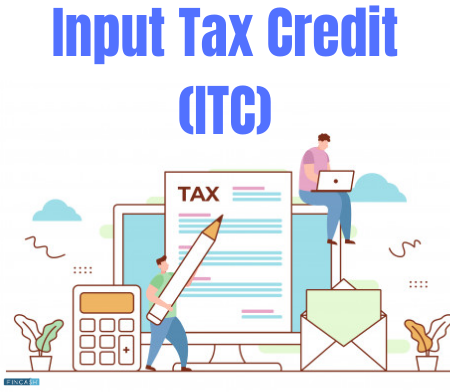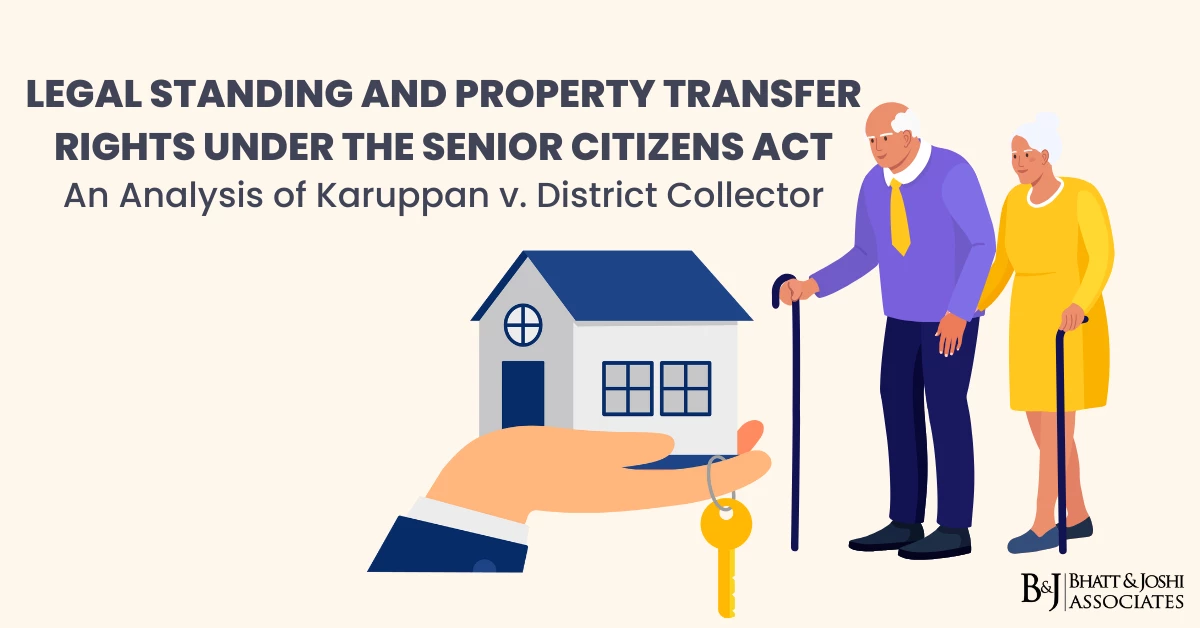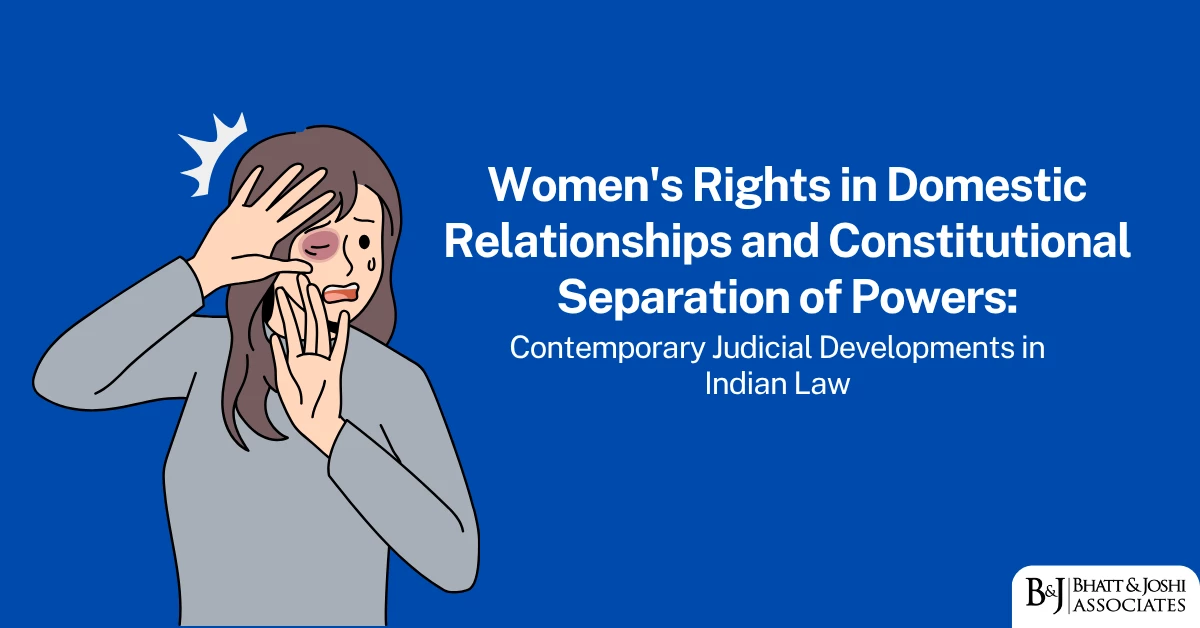Background
In this Case, revolves around examination of legal principles and judicial interpretation on ITC in the context of GST the petitioner. B.K. Traders, is a sole proprietary concern engaged in the business of trading edible oil. The controversy revolves around a notice issued to the petitioner on 23.12.2019 for re-assessment under Section 35(1) of the VAT Act by the respondent No.2. The petitioner lamented that no reason was given in the notice for re-assessment.

The petitioner furnished a detailed reply on 13.03.2020, seeking various details and documents on the basis of which their case was selected for re-assessment. However, the respondent No.2 ignored this communication and proceeded to pass the impugned order on 24th March 2020, a day prior to the imposition of lockdown in the entire Country, thereby raising dues to the tune of Rs.1,27,45,512/-, inclusive of the interest and penalty.
The basis for levying the tax, penalty, and interest was the cancellation of registration of a vendor, Maa Oil Mills, with whom the petitioner had transacted during the years 2014 and 2015. The petitioner argued that neither the copy of the cancellation of the registration of Maa Oil Mills nor any other materials nor any opportunity had been given to cross-examine a responsible employee or office bearer of Maa Oil Mills. This, according to the petitioner, was a complete failure on the part of respondent No.2 to follow the principles of natural justice, and the order was passed, denying the ‘Input Tax Credit’ (ITC) to the petitioner.
Prayer of the Applicant
The petitioner sought the quashing of the impugned order dated 24.03.2020, passed in Form No. 304, as well as the Notice dated 24.03.2020, issued in the Form No. 305, by the respondent No.2, under Section 35 of the Gujarat Value Added Tax Act, 2003 (VAT Act). The challenge was made predominantly on the grounds that, without assigning any reason or availing any opportunity and in complete breach of the principles of natural justice, the impugned order came to be passed by the respondent No.2.
The court, acknowledging the violation of principles of natural justice and the petitioner’s request for relevant and vital documents, deemed it appropriate to entertain this petition and at the joint request made by both the sides, the matter was remitted, quashing and setting aside the impugned order of assessment.
The court ordered that the respondent-authority shall supply the material requested for by the petitioner, including the order of cancellation of registration of Maa Oil Mills and any other materials connected therewith and available with it, for the purpose of re-assessment. If any fresh evidence is needed to be furnished by the petitioner, it should be done within the period of two weeks from the date of receipt of the documents requested by the petitioner from the authorities.
Legal Issues Involved
The legal issues involved in this case revolve around the principles of natural justice and the right to ‘Input Tax Credit’ (ITC) under the VAT Act. The key legal issues can be summarised as follows:
- The petitioner argued that the respondent No.2 failed to follow the principles of natural justice by not providing any reason for re-assessment and not giving any opportunity to cross-examine a responsible employee or office bearer of M/s. Maa Oil Mills.
- The petitioner also contended that the cancellation of registration of Maa Oil Mills, a vendor with whom the petitioner had transacted during the years 2014 and 2015, was done without providing the petitioner with a copy of the cancellation or any other materials related to it. This, according to the petitioner, led to the denial of the ‘Input Tax Credit’ (ITC) to them.
- The respondent No.2 argued that the cancellation of registration of the vendor- Maa Oil Mills is the reason for such order and since, such cancellation of registration is now being put on the official website of the respondent, it is for one and all to consume and act, accordingly.
Arguments made by Applicant
- The law is well-settled regarding when the Court can exercise jurisdiction under Article 226 of the Constitution of India, even when an alternative efficacious remedy is available. This case, according to Mr. Bhatt, is a classic example where there has been a complete violation of the principles of natural justice and a disregard of the law, leading to the imposition of a heavy liability of tax along with interest and penalty.
- It was argued that all transactions with Maa Oil Mills were conducted through banking channels only. There are transport receipts on record, and therefore, the order of cancellation of registration of Maa Oil Mills should have no bearing on the assessment of the present petitioner.
- He further argued that there are valid evidences of procuring of goods, after payment of GST, and the same goods have also been sold. Therefore, there is a violation of principles of natural justice, and the writ-jurisdiction needs to be exercised by this Court.
- Regarding the alternative efficacious remedy, Mr. Bhatt argued that the law is well-settled. He pointed out that even the communication dated 13.03.2020, addressed to respondent No.2, has not been responded to, and the impugned order was passed on 24.03.2020, i.e., the day on which the nationwide lockdown was announced due to the outbreak of Covid-19 virus.
Submission by the Opposition
The key points of the opposition submission were:
- The respondent-authority argued that the cancellation of registration of the vendor- Maa Oil Mills is the reason for such order and since, such cancellation of registration is now being put on the official website of the respondent, it is for one and all to consume and act, accordingly.
- The respondent-authority also pointed out the provision of Section 73 of the VAT Act, which provides for appeal before the Assessing Officer against the impugned order. They argued that the appellate authority under the VAT Act does not have original powers of assessment or of further inquiry.
- The respondent-authority contended that the petitioner was required to prove and establish the actual movement of goods and the genuineness of the transaction to claim the ITC. Mere production of the bills, vouchers, etc. is not sufficient to claim the ITC.
- The respondent-authority argued that the impugned order has been passed denying the ITC claimed by the petitioner on the alleged purchases made by the petitioner from Maa Oil Mills on the ground that the seller had involved into the billing activities only and all the transactions by Maa Oil Mills are held to be bogus.
Important Observations of the Court
The court made several important observations in this case. Here are the key points:
- The appellate authority doesn’t have the power to make an original assessment or conduct further investigation. The denial of the petitioner’s claim for ITC is based on the absence of a crucial document – the cancellation document of Maa Oil Mills’ registration. The court believes that denying ITC based on the absence of this essential document is unfair.
“Noticing the provision of Section 73 of the VAT Act, which provides for appeal before the Assessing Officer against the impugned order, submissions of alternative remedy may look attractive on the face of it, however, it can be noticed that the appellate authority under the VAT Act does not have original powers of assessment or of further inquiry. Again, noticing the glaring and blatant act of denial of the very basic document of cancellation of the registration of M/s. Maa Oil Mills, being No. 240942971, which is the edifice for denying ITC to the petitioner, this court finds the request of invocation of Writ jurisdiction for the purpose of setting aside the impugned order necessary without entering into the merits, on the grounds of non supply of basic documents and non consideration of the case of the Petitioner independently, on its own merits.” (Page 5)
- Court finds that principles of natural justice were not followed. Because it was recognized that these principles were not followed, court has decided to consider this petition. The petitioner and the respondent have jointly requested that the matter be remitted. The court has agreed to quash and to set aside the impugned order of assessment
“In the instant case, since, we find that there is violation of principles of natural justice, more particularly, when the petitioner chose to approach the respondent-authority on 13.03.2020 and requested for relevant and vital documents, in response to the notice issued by it, without supplying the same, respondent-authority has imposed the petitioner with not only the heavy penalty but also interest by the order dated 24.03.2020, which is impugned in this petition, we, therefore, deem it appropriate to entertain this petition and at the joint request made by both the sides, matter deserves to be remitted, quashing and setting aside the impugned order of assessment.” (Page 5)
- Shree Bhairav Metal Corporation v. the State of Gujarat, the petitioner bought materials from a company, M/s. Lucky Enterprise. The petitioner provided bills as proof of their purchases from Lucky Enterprise and claimed a specific amount of ITC based on those purchases.
“In our view, we are also supported by the decision of this Court (Coram: Mr. M.R. Shah, Mr. S.H. Vora, J.J.) (Coram: in the case of ‘Shree Bhairav Metal Corporation v. State of Gujarat’, Dated: 26.03.2015, rendered in Special Civil Application No. 2149 of 2015, wh, the petitioner had purchased the material from one M/s. Lucky Enterprise. The petitioner also had produced the bills, with regard to the goods purchased by it from M/s. Lucky Enterprise and the petitioner had claimed certain amount of total ITC on the purchase, allegedly made to have been from M/s. Lucky Enterprise. The Assessing Officer passed the C/SCA/7944/2020 ORDER assessment order, allowing ITC claim made by the petitioner in respect of the goods purchased from M/s. Lucky Enterprise. (Page 5)
- This petition succeeded and was “Partly Allowed”. The impugned order dated 24.03.2020 was QUASHED and set aside and the matter is Remanded to the competent authority for its consideration afresh, on merits, the case of the petitioner of ITC, after availing due opportunity to the petitioner.
Important Provisions of Law
-
Article 226 of the Constitution of India
This provision empowers the High Courts to issue certain writs. It is invoked when there is a violation of the principles of natural justice, disregard of the law, or when an authority has acted arbitrarily or lacks jurisdiction. In this case, the court exercised its jurisdiction under Article 226 due to the violation of the principles of natural justice by the respondent-authority.
-
Section 73 of the Gujarat Value Added Tax Act, 2003 (VAT Act)
This provision provides for appeal before the Assessing Officer against the impugned order. However, the appellate authority under the VAT Act does not have original powers of assessment or of further inquiry. In this case, the court noted that the respondent-authority’s reliance on Section 73 as an alternative remedy was not sufficient, as the authority had denied the petitioner’s basic documents and failed to consider the petitioner’s case independently.
-
Section 35 of the Gujarat Value Added Tax Act, 2003 (VAT Act)
This provision was invoked by the respondent-authority to issue the impugned assessment order and notice. The court found that the respondent-authority had acted in complete breach of the principles of natural justice in issuing the order and notice under this provision.
Conclusion
The court concludes that the case was a clear violation of the principles of natural justice. It found that the respondent-authority had acted in complete disregard of the law, imposing a heavy tax liability along with interest and penalty on the petitioner without providing any valid reasons or opportunity for the petitioner to defend its case.
Court quashed the impugned order dated 24.03.2020 and remanded the matter to the competent authority for its consideration afresh, on merits, the case of the petitioner of ITC, after availing due opportunity to the petitioner. The court also ordered the respondent-authority to supply the material requested for by the petitioner, including the order of cancellation of registration of Maa Oil Mills and any other materials connected therewith and available with it, for the purpose of re-assessment.
The court concludes by stating that the petitioner shall cooperate in the proceedings of reassessment before the competent authority and as ensured, shall not raise the plea of limitation. The court ordered that this entire exercise be completed, if possible, within the period of six months, from the date of receipt of a copy of this order.
References
The cases referred to in the judgment are:
- Shree Bhairav Metal Corporation v. State of Gujarat, rendered in Special Civil Application No. 2149 of 2015. In this case, the petitioner had purchased the material from one Lucky Enterprise. The petitioner also had produced the bills, with regard to the goods purchased by it from Lucky Enterprise and the petitioner had claimed a certain amount of total ITC on the purchase, allegedly made to have been from Lucky Enterprise. The Assessing Officer passed the assessment order, allowing ITC claim made by the petitioner in respect of the goods purchased.
- Vinod Arvind v. Income Tax Officer, the court held that the writ-jurisdiction is essentially a discretionary jurisdiction. A writ may not be issued, just because it may be lawful to do so. Further, merely because an alternative, efficacious remedy is available statutorily that would not mean that the writ jurisdiction cannot be exercised. It is held that it is a self-imposed restriction and such restriction, however, may not apply, if, the alternative remedy is found to be illusory or burdensome, then, the Court may entertain the writ jurisdiction for breach of the principles of natural justice or for Protection of the fundamental rights or when the action of the authority is arbitrary or is lacking jurisdiction.











